Digital Marketing Vs Growth Marketing: Get To Know Which Is Right For You?
Are you curious about the differences between digital marketing and growth marketing? Wondering how these two strategies can help businesses thrive in the online world? Well, you’ve come to the right place! In this article, we’ll explore the exciting world of digital marketing versus growth marketing and uncover the unique benefits they bring to the table. So, let’s dive in and discover what sets these two marketing approaches apart!
When it comes to digital marketing, it’s all about leveraging the power of online channels to reach and engage with your target audience. From social media campaigns and email marketing to search engine optimization and content creation, digital marketing encompasses a wide range of tactics. This strategy helps businesses establish a strong online presence, boost their brand awareness, and drive leads and sales.
Now, let’s switch gears and talk about growth marketing. Unlike traditional marketing, growth marketing takes a holistic approach to business growth. It focuses on experimenting, measuring, and optimizing marketing strategies to drive rapid and sustainable business expansion. Growth marketing aims to identify and capitalize on high-leverage growth opportunities, utilizing data-driven insights and strategic thinking to fuel success.
So, whether you’re interested in building a robust online presence or driving rapid business growth, understanding the differences between digital marketing and growth marketing is crucial. Whether you’re a small business owner, an aspiring marketer, or simply curious about the ever-evolving world of marketing, stay tuned as we uncover the unique aspects of each strategy and the impact they can have on your business. Exciting times lie ahead, so let’s embark on this marketing journey together!
Growth marketing and digital marketing are two approaches to driving business success. While both share commonalities, they have distinct features that set them apart. Let’s compare them based on five key aspects:
| Aspect | Growth Marketing | Digital Marketing |
|---|---|---|
| Goal | Focuses on rapid business expansion | Uses various digital channels to reach target audience |
| Metrics | Emphasizes growth-related KPIs | Measures online campaigns’ performance |
| Strategy | Utilizes experimental and data-driven methods | Leverages SEO, social media, and content marketing |
| Approach | Focuses on customer retention and monetization | Targets brand exposure and lead generation |
| Target Audience | Mobilizes existing customers and referrals | Targets potential customers through digital platforms |
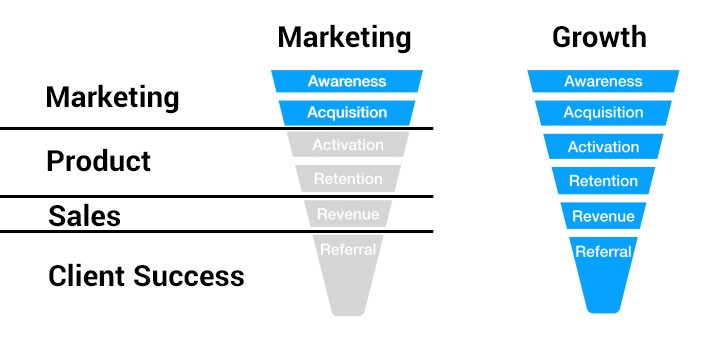
Key Takeaways: Digital Marketing Vs Growth Marketing
- Digital marketing focuses on promoting products or services through various online channels.
- Growth marketing goes beyond traditional marketing tactics to prioritize sustainable, long-term business growth.
- Digital marketing typically uses strategies like SEO, social media marketing, and online advertising.
- Growth marketing adopts a data-driven approach, constantly testing and optimizing strategies to maximize results.
- While digital marketing aims to drive traffic and conversions, growth marketing aims to drive scalable, exponential growth.
Comparing Digital Marketing Vs Growth Marketing
Digital marketing and growth marketing are two popular strategies that businesses use to promote their products or services and achieve growth. While they have similarities, they also have distinct differences that set them apart. In this article, we will compare digital marketing and growth marketing, exploring their key features, user experiences, pros and cons, pricing, and ultimately determining which is better for businesses.
Overview of Digital Marketing
Digital marketing encompasses various online marketing strategies and channels, including search engine optimization (SEO), pay-per-click (PPC) advertising, content marketing, social media marketing, email marketing, and more. It focuses on leveraging digital platforms to reach and engage with a target audience, increase brand visibility, and drive conversions.
Digital marketing allows businesses to create targeted and personalized campaigns, track and measure the performance of their marketing efforts, and optimize their strategies based on data and insights. It offers a wide range of tools and techniques to effectively connect with consumers in the digital landscape.
Overall, digital marketing is a comprehensive approach that utilizes digital channels and technologies to promote products or services, build brand awareness, and drive business growth.
Overview of Growth Marketing
Growth marketing, also known as growth hacking, is a data-driven and experimental approach to marketing that focuses on rapid and sustainable business growth. It goes beyond traditional marketing tactics and aims to discover innovative strategies to drive customer acquisition, retention, and revenue.
Growth marketers utilize a combination of marketing, data analysis, product development, and engineering to identify opportunities for growth and devise strategies to achieve it. They prioritize experimentation, testing, and optimization to continuously improve the marketing funnel and generate scalable results.
Growth marketing is often associated with startups and early-stage companies that are looking to accelerate their growth. It involves a growth mindset and an agile approach to marketing, constantly adapting and iterating based on feedback and data insights.
Key Features Compared
Now let’s dive into the key features of digital marketing and growth marketing and compare them in more detail.
Targeting and Personalization
Digital Marketing: With digital marketing, businesses can target specific audiences based on demographics, interests, behaviors, and other segmentation factors. They can create personalized messages and experiences to engage with their target market effectively.
Growth Marketing: Growth marketing also emphasizes targeted and personalized marketing efforts. However, it takes targeting and personalization to the next level by leveraging data-driven insights to identify and target high-potential customers who are most likely to convert and become loyal customers.
Metrics and Analytics
Digital Marketing: Digital marketing provides extensive metrics and analytics tools to measure the performance of campaigns and channels. Businesses can track key performance indicators (KPIs) such as website traffic, conversion rates, customer engagement, and return on investment (ROI) to assess the effectiveness of their marketing efforts.
Growth Marketing: Growth marketing places a strong emphasis on data analysis and measurement. Growth marketers use advanced analytics tools and techniques to track and analyze data throughout the entire customer journey, from acquisition to conversion and loyalty. They aim to uncover actionable insights and identify areas for optimization and growth.
Experimentation and Testing
Digital Marketing: Digital marketing allows businesses to test and experiment with different marketing strategies, creatives, and messaging. Split testing, also known as A/B testing, is commonly used to compare the performance of different variants and determine the most effective approach.
Growth Marketing: Growth marketing takes experimentation and testing to a higher level. Growth marketers are constantly running experiments and conducting tests across various marketing channels, landing pages, user experiences, and more. They seek to identify growth opportunities and optimize their strategies based on data-driven insights.
User Experience
Digital Marketing: Digital marketing aims to provide a seamless and enjoyable user experience across different online touchpoints. It focuses on creating user-friendly websites and landing pages, delivering valuable and relevant content, and optimizing the customer journey to enhance user satisfaction.
Growth Marketing: Growth marketing keeps user experience at the forefront of its strategies. It identifies pain points and friction in the user journey and works towards eliminating them to improve overall customer satisfaction. Growth marketers constantly iterate and refine the user experience to enhance conversion rates and retention.
Scalability and Growth Potential
Digital Marketing: Digital marketing offers scalability and growth potential by leveraging digital channels that have a massive reach. Businesses can expand their marketing efforts and target a wider audience as their budgets and resources allow. However, the scalability may vary depending on the specific channels and strategies used.
Growth Marketing: Growth marketing is all about achieving rapid and sustainable business growth. It focuses on developing scalable marketing strategies that can be effectively implemented as the business grows. Growth marketers are always searching for new growth levers and opportunities to fuel long-term growth.
Data and Insights
Digital Marketing: Digital marketing provides businesses with valuable data and insights that can inform their marketing decisions. It allows businesses to understand their audience better, track consumer behavior, and measure the impact of their marketing efforts. This data can be used to refine and optimize marketing strategies.
Growth Marketing: Growth marketing heavily relies on data and insights to drive growth. Growth marketers use advanced analytics tools and platforms to gather data, conduct experiments, and gain actionable insights that can lead to growth. They constantly monitor performance metrics and leverage data to make informed decisions.
User Experience
The user experience plays a crucial role in both digital marketing and growth marketing. A positive user experience can significantly impact customer retention, brand loyalty, and overall business success.
In digital marketing, businesses strive to create a seamless and enjoyable user experience across digital touchpoints. From a user-friendly website to engaging social media content, the focus is on providing value and meeting the needs of the target audience. Digital marketing aims to make the user journey smooth and frictionless, encouraging users to convert and become loyal customers.
In growth marketing, the user experience is a core consideration. Growth marketers continuously analyze user behavior and experiment with different user experiences to optimize conversion rates and retention. They focus on understanding customer pain points and addressing them to create a positive and memorable experience. The goal is to remove barriers and create a seamless experience that keeps users engaged and coming back for more.
Both digital marketing and growth marketing aim to deliver exceptional user experiences, albeit with slightly different approaches. While digital marketing focuses on overall user experience design and optimization, growth marketing takes a more data-driven approach, leveraging experiments and insights to enhance user satisfaction and drive growth.
Pros and Cons
Let’s outline the pros and cons of digital marketing and growth marketing to provide a comprehensive understanding of both strategies.
Pros and Cons of Digital Marketing
Pros:
- Wide range of digital channels and tactics
- Targeted and personalized marketing efforts
- Extensive metrics and analytics for tracking performance
- Opportunity to reach a large audience
Cons:
- High competition in digital space
- Constantly evolving digital landscape
- Requires knowledge and expertise in various platforms and tools
- May require significant budget allocation for optimal results
Pros and Cons of Growth Marketing
Pros:
- Data-driven and experimental approach to marketing
- Focused on rapid and sustainable growth
- Constantly testing and iterating to optimize strategies
- Emphasizes scaling and long-term growth potential
Cons:
- Requires a strong emphasis on data analysis and interpretation
- Needs a growth mindset and willingness to take risks
- May require a dedicated growth team or specialist
- Challenges in identifying scalable growth opportunities
Price Comparison
When it comes to the price comparison between digital marketing and growth marketing, it’s important to consider that the costs can vary significantly depending on various factors such as business size, industry, goals, and the scope of marketing activities.
Digital marketing costs can include platforms or tools, advertising spend, content creation, website development, and hiring or outsourcing marketing expertise. The costs can range from affordable, particularly for small businesses using organic strategies, to substantial investments for larger businesses utilizing paid advertising and extensive campaigns.
Growth marketing costs can also vary depending on the level of experimentation and innovation required. It may involve investing in advanced analytics tools, hiring growth specialists, and conducting frequent experiments. While growth marketing can be more resource-intensive, it offers the potential for substantial returns on investment if successful growth strategies are identified and implemented.
Comparison Table
| Feature | Digital Marketing | Growth Marketing |
|---|---|---|
| Targeting and Personalization | Allows for targeted messaging and personalization based on demographics and interests. | Leverages data-driven insights for hyper-targeted marketing efforts. |
| Metrics and Analytics | Provides extensive metrics and analytics tools to track campaign performance. | Focuses on advanced analytics and data analysis throughout the customer journey. |
| Experimentation and Testing | Enables testing and experimenting with different marketing strategies. | Emphasizes continuous experimentation and optimization. |
| User Experience | Focuses on creating a seamless and enjoyable user experience. | Constantly optimizes the user experience to improve conversion rates and retention. |
| Scalability and Growth Potential | Offers scalability through digital channels, but the scalability may vary. | Prioritizes rapid and sustainable growth with scalable strategies. |
| Data and Insights | Provides valuable data and insights for marketing decisions. | Relies heavily on data analysis and actionable insights. |
Final Decision: Which is Better?
Both digital marketing and growth marketing have their own strengths and are valuable strategies for businesses looking to achieve growth. The choice between the two depends on several factors, including business goals, resources, and the stage of growth.
However, if we focus on rapid and sustainable growth with a strong emphasis on data and experimentation, growth marketing emerges as the preferred strategy. Here are three reasons why:
- Data-Driven Approach: Growth marketing relies heavily on data analysis and insights to drive decision-making. It allows businesses to make informed choices based on measurable results and continuous optimization.
- Focused on Rapid Growth: Growth marketing is specifically designed to fuel rapid and sustainable growth. It prioritizes innovation, experimentation, and iteration to identify growth opportunities and optimize marketing efforts.
- Scalability and Long-Term Potential: Growth marketing emphasizes scalability and long-term growth potential. It aims to develop marketing strategies that can be effectively implemented as the business grows, ensuring continued success in the future.
While digital marketing remains a valuable strategy for businesses, growth marketing offers a more targeted and data-driven approach, making it better suited for businesses seeking substantial growth and long-term success.
Frequently Asked Questions
Digital marketing and growth marketing are two key strategies used in the world of online marketing. While they have similarities, they also have distinct differences. Here are the answers to some common questions regarding digital marketing versus growth marketing.
1. What is the main difference between digital marketing and growth marketing?
Digital marketing primarily focuses on promoting products or services online, using channels such as websites, search engines, social media, and email marketing. It aims to generate leads, increase brand visibility, and drive conversions. Growth marketing, on the other hand, is centered around achieving sustainable business growth. It goes beyond traditional marketing tactics and leverages data-driven strategies to optimize all stages of the customer journey.
Growth marketing involves experimenting, analyzing data, and implementing continuous improvements to drive customer acquisition, retention, and revenue growth. While digital marketing is a subset of growth marketing, growth marketing encompasses a wider range of activities with a strong focus on scalability and long-term growth.
2. Which approach should I choose: digital marketing or growth marketing?
The choice between digital marketing and growth marketing depends on your specific goals and business objectives. If you are primarily looking to establish an online presence, increase brand awareness, and drive website traffic, digital marketing might be the right choice. Digital marketing techniques can help you optimize your website, run social media campaigns, and create engaging content to attract and retain customers.
On the other hand, if your goal is to ensure sustainable business growth, improve customer acquisition and retention rates, and achieve long-term profitability, growth marketing might be a better fit. Growth marketing involves a holistic approach, utilizing data analysis, experimentation, and optimization techniques to identify opportunities for growth and maximize ROI at every stage of the customer journey. It requires a deeper focus on metrics, analytics, and strategic decision-making.
3. Can digital marketing and growth marketing be used together?
Absolutely! In fact, combining digital marketing and growth marketing can be a highly effective strategy to drive business growth in the digital age. Digital marketing techniques such as search engine optimization (SEO), content marketing, social media advertising, and email marketing can be utilized within a growth marketing framework.
Growth marketing involves analyzing data and conducting experiments to identify the most effective digital marketing channels and tactics. By continuously optimizing your digital marketing efforts based on insights gained through growth marketing strategies, you can achieve better results and drive sustained growth for your business.
4. Which is more cost-effective: digital marketing or growth marketing?
Cost-effectiveness of digital marketing versus growth marketing depends on various factors, including your budget, target audience, and industry. Digital marketing can be cost-effective, especially for small businesses with limited resources. It allows you to target specific audience segments, measure results, and adjust campaigns accordingly. However, it can also be competitive, requiring investments in advertising and content creation to stand out in a crowded digital landscape.
Growth marketing, while potentially requiring a larger initial investment, can offer a higher return on investment (ROI) in the long run. By adopting a data-driven approach and continuously optimizing your marketing efforts, growth marketing can help you identify the most efficient channels and strategies to drive growth and profitability. It prioritizes efficiency and scalability, helping you reach your business goals more effectively.
5. Are there any risks involved in adopting growth marketing strategies?
As with any business strategy, there are potential risks involved in implementing growth marketing strategies. One of the main risks is investing time and resources into experiments that may not yield the desired results. Growth marketing relies on data analysis and experimentation, which means not every experiment will be successful. However, it is important to view these failures as learning opportunities and pivot accordingly.
Another risk is the potential for information overload. Growth marketing involves analyzing large amounts of data to make informed decisions. It requires a solid understanding of analytics and the ability to extract meaningful insights. Without proper data analysis and interpretation, the effectiveness of growth marketing strategies may be compromised. It’s crucial to have a comprehensive understanding of your data and metrics to ensure accurate and effective decision-making.
Growth marketing vs. digital marketing (explained in 2 minutes)
Summary
So, to wrap it all up, in this article we learned about two important types of marketing: digital marketing and growth marketing.
Digital marketing is all about using online platforms like websites, social media, and emails to reach and engage with customers. It helps businesses increase their online presence and attract more people to their products or services.
On the other hand, growth marketing goes beyond just online marketing. It focuses on the entire customer journey and uses various strategies to not only attract but also retain customers. Growth marketing is all about constantly experimenting, learning, and adapting to find what works best.
In the end, both digital marketing and growth marketing are important for businesses to thrive in today’s digital world. Digital marketing helps to create awareness and attract customers, while growth marketing helps to build long-lasting relationships with customers and drive business growth.
So, whether you’re interested in marketing or planning to start your own business someday, understanding these two types of marketing can help you succeed in the digital age. Keep exploring and experimenting to find what works best for you and your target audience. Happy marketing!

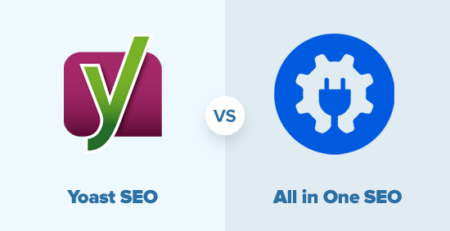
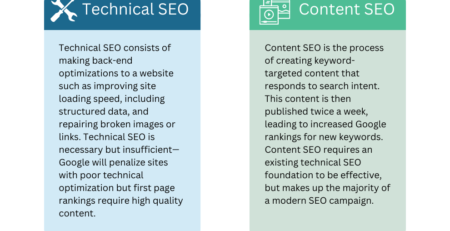
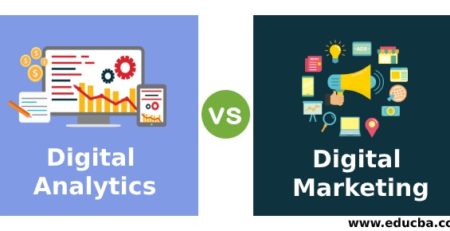
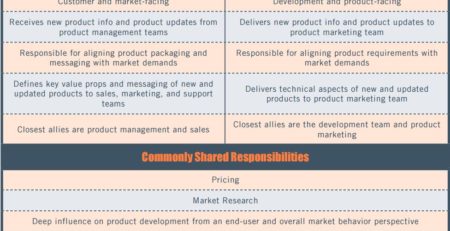
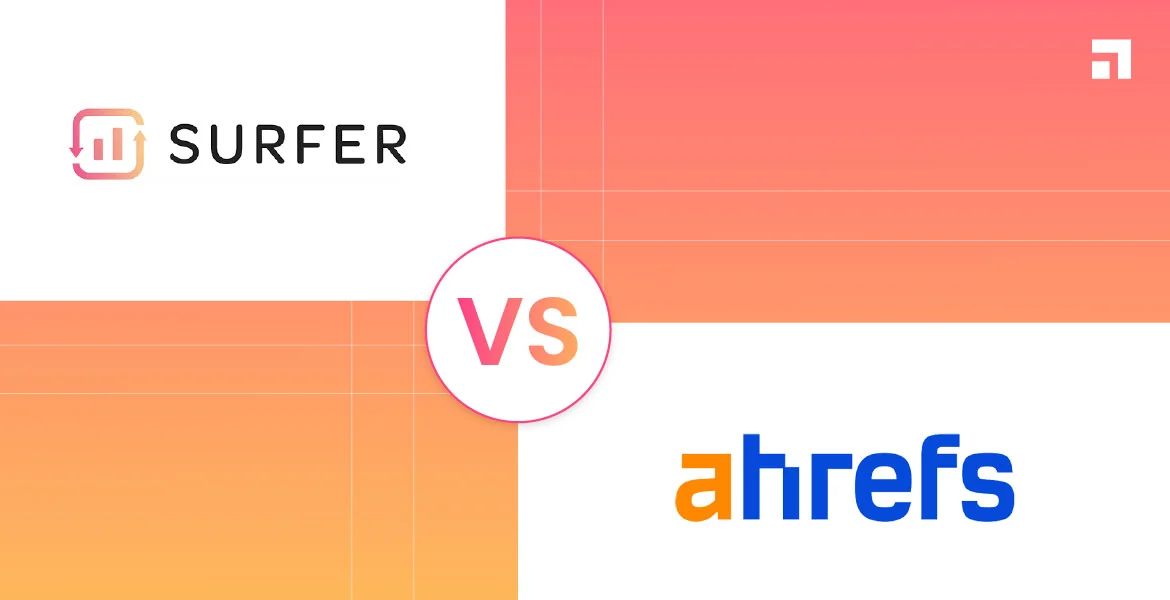
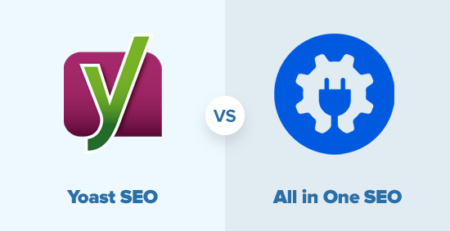
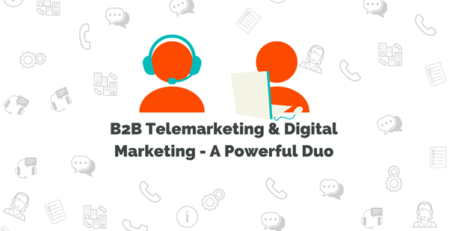
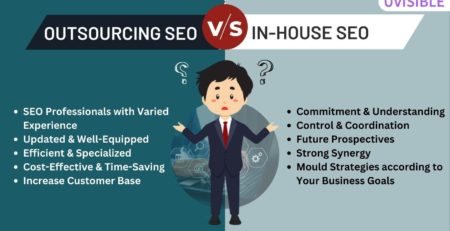
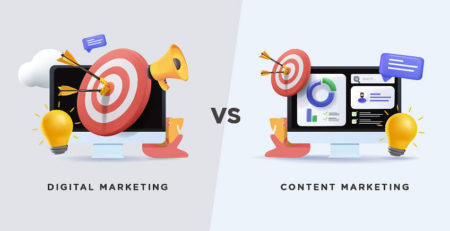
Leave a Reply